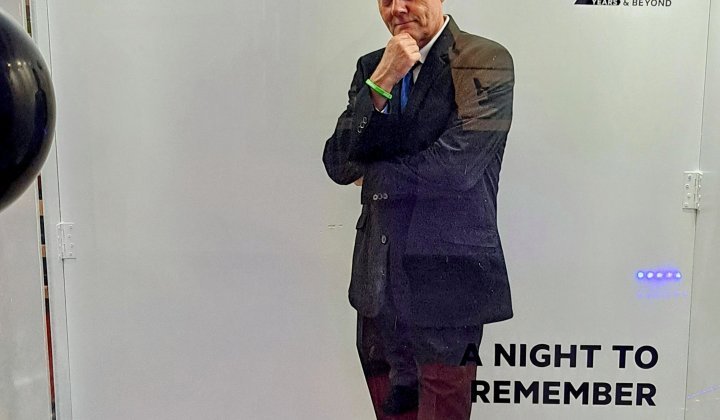These are designed to fulfil the requirements of B-BBEE ownership or promote socio-economic development and need to be approved by the Department of Trade, Industry and Competition (dtic).
In August 2021, J.P. Morgan became the first international investment bank in South Africa to launch a dtic-approved equity equivalent investment programme (EEIP), aiming at channelling R340 million of funding into the South African economy to create a minimum of 1,000 net permanent jobs and support at least 500 early-stage businesses that require growth capital to scale their service and product offering. The programme, called Abadali EEIP, consists of the Abadali Fund, a black business growth fund, and the Abadali Grant.
Creating solutions
'Abadali' translates to ‘Creators’ in isiXhosa and isiZulu. The Abadali EEIP intends to create a positive economic and social impact in South Africa by addressing a critical funding gap for majority black-owned and controlled enterprises. It falls under a broader Abadali umbrella at J.P. Morgan, which includes an art development programme (aimed at assisting developing artists with professional development and achieving financial stability) and a new black advisory programme (which focuses on professional development for black financial advisors).
Ronelle Reddy, senior chief financial officer, J.P. Morgan Sub-Saharan Africa, says that J.P. Morgan is committed to diversity and inclusion, emphasising community impact. The Abadali programmes reflect this, he says.
“The idea for the Abadali EEIP came with the overlay of black economic empowerment and a regulatory perspective, but we started more from what we wanted to do from an impact perspective. We took the legislation into account when we were conceptualising the idea, and to some extent, we were able to help shape the legislation. We wanted to implement something that would affect our communities in a bigger, broader way. We set ourselves a few objectives: creating jobs, upskilling people, and ultimately, looking at how best we could help move the economy forward. And with those three objectives, one of the five concepts we had on the table really shone the brightest for us, and that was the EEIP.”
“South Africa currently faces many serious challenges, including poverty, unemployment and inequality, all of which have worsened in the wake of Covid-19,” says Kevin Latter, senior country officer, J.P. Morgan Sub-Saharan Africa. “The only way to build a sustainable, successful future for the country is to begin to address these challenges. This initiative focuses on the crucial challenge of building jobs and skills for people and supporting small to medium businesses by providing access to affordable financing.”
Programme specifics
The Abadali EEIP will run over eight years. The deployment of J.P. Morgan’s initial R300 million through the fund and R40 million through the grant is expected to result in R2 billion worth of financing transactions.
The Abadali Fund will be overseen by J.P. Morgan and administered by Masakhe Partners, a joint venture between Edge Ventures, an established fund manager, and ProfitShare Partners, a successful fintech short-term capital solutions partner, both of which are majority black-owned and controlled. J.P. Morgan will manage the Abadali Grant.
The Abadali EEIP intends to generate a positive economic and social impact in South Africa by addressing a critical funding gap for small and medium enterprises that do not meet the traditional underwriting criteria of general commercial banking requirements. It will focus on providing access to the three Ms – money, markets and mentorship – which tend to be the key stumbling blocks for small businesses.
Short-term finance will be provided to businesses with no initial annual revenue with a requirement for loans of R250,000 or more. Medium to long-term finance will be offered to businesses with revenue from R1 million.
The eligible, selected businesses will be majority black-owned and managed enterprises and must have a track record of at least 12 months of trading. These businesses can include sole proprietors, partnerships or joint ventures. The sectors targeted will be financial services, industrial, educational, healthcare, green and digital inclusion sectors of the South African economy. The selected businesses will be provided with business support and linked to corporates, and potentially J.P. Morgan’s value chains and networks, too.
The Abadali EEIP will use debt instruments with flexible terms and conditions tailored to the typical needs of early-stage businesses, from loan repayment holidays to unsecured loans.
“We’re really looking to provide support to those who can’t normally access it,” says Reddy. “We’re looking for entrepreneurs within townships, black women, individuals who have been trying for a very long time to access the support they need, and who’ve done all the work on their side. Within this model, we’ve thought about start-up needs of companies with zero income, right up to companies that are established and now need to break into that next realm.”
One of the most important aspects of the programme is its ‘wraparound’ nature, providing support with business case development, legal advice and tender negotiation support.
Impressive uptake
Reddy says the response to the EEIP model from other businesses and J.P. Morgan firms in regions like Latin America and the UK have been pleasing, and there’s interest in implementing similar models there.
She adds that the response to calls for applications for the fund has been overwhelming to date. J.P. Morgan received 450 applications, which were narrowed down to 50 under consideration for the first round of funding.
The first Abadali Grant portion has also been designated. It will fund a partnership with Fetola and the Embassy of Finland to launch a business accelerator that will support the growth of over 100 small and emerging businesses across South Africa. The programme is called the Fetola Circular Economy Accelerator (FCEA). In addition to directly assisting the business growth of the selected companies, it aims to contribute to ecosystem building and access to information for thousands of other businesses through its Green Tech Exchange platform.
“While we know that business alone cannot solve today’s biggest challenges, we believe firmly that it is within our mandate to do our part,” says Latter. “J.P. Morgan is actively looking to partner with government and civil society to develop and offer mutually beneficial solutions. We believe the Abadali Fund can be a powerful avenue to drive these sorts of partnerships.”
Applications and additional information
The application forms for both short-term and medium to long-term funding are available from the Abadali EEIP website, www.jpmorgan.com/ZA/en/abadali-eeip, along with more information on qualifying criteria and the programme itself.
Reddy says regular updates will be posted to the site and shared in the media and encourages eligible businesses to submit an application.




